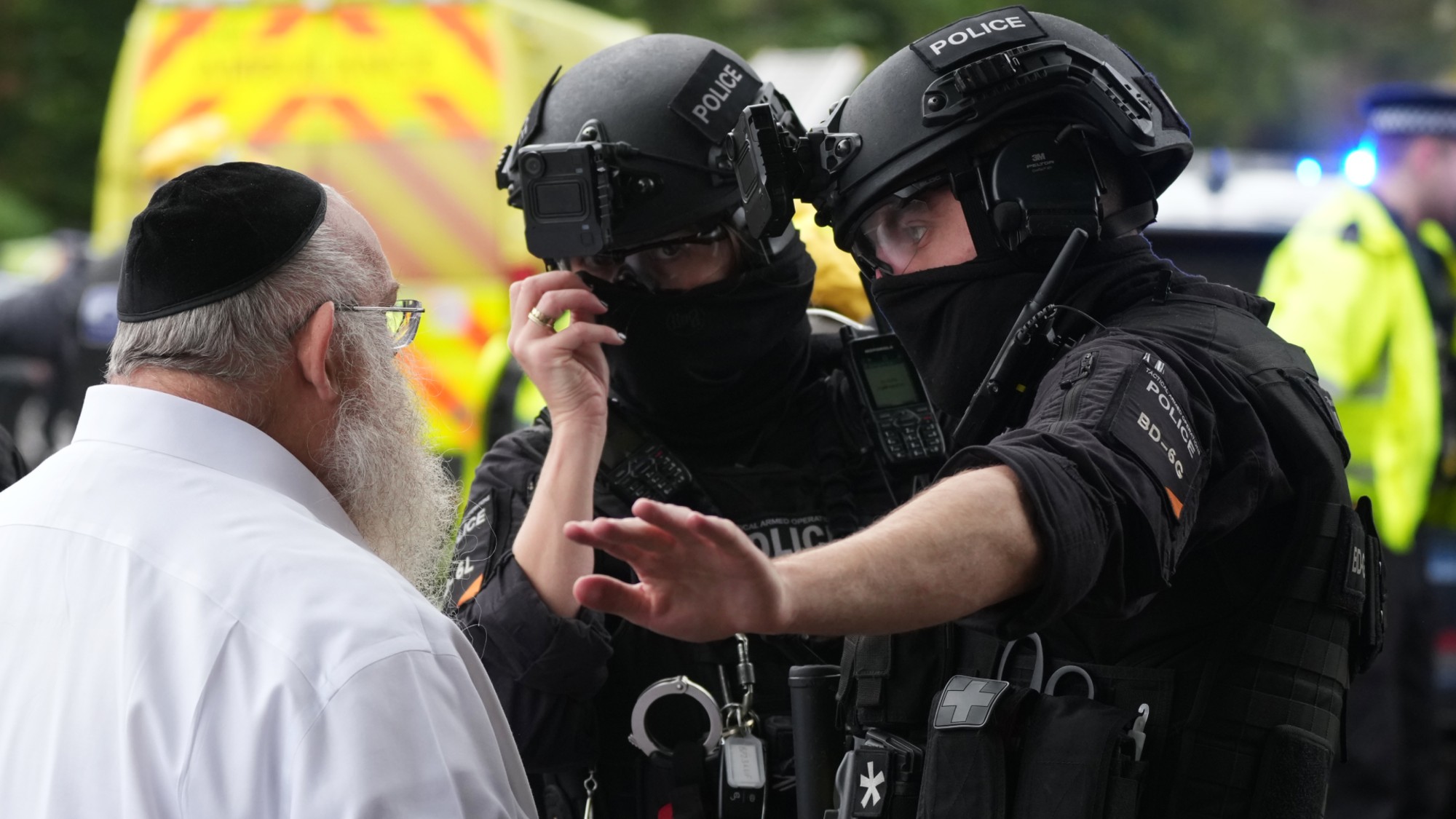Vast majority of deradicalisation programmes ‘ineffective’
Damning Home Office report raises serious questions about flagship Prevent

A free daily email with the biggest news stories of the day – and the best features from TheWeek.com
You are now subscribed
Your newsletter sign-up was successful
The vast majority of deradicalisation programmes are ineffective and even counterproductive, a damning report commissioned by the Home Office has found.
Of the 33 government-funded programmes designed to safeguard vulnerable people from far-right and religious extremist threats which were analysed, only two were found to be effective, The Times reports.
The study by the Behavioural Insights Team (BIT), identified failures in approach to deradicalisation in schools, youth centres, sports clubs and English-language classes.
The Week
Escape your echo chamber. Get the facts behind the news, plus analysis from multiple perspectives.

Sign up for The Week's Free Newsletters
From our morning news briefing to a weekly Good News Newsletter, get the best of The Week delivered directly to your inbox.
From our morning news briefing to a weekly Good News Newsletter, get the best of The Week delivered directly to your inbox.
Participants in the study felt their freedom of expression had been restricted and teachers would refuse to engage in topics over fears of bringing up matters of race and religion without appearing discriminatory.
The Daily Express says that until the “shock intervention” by BIT, many of these programmes had claimed a success rate of more than 90% “after self-evaluation”.
The Times says the findings “raise questions about the government’s Prevent programme”, its controversial flagship counter-extremism initiative.
The scheme, which was brought in after the 7/7 bombings to deal with threats from Islamist and far-right extremism, has since expanded to make it a statutory duty for schools, hospitals, prisons and local authorities to report concerns about those at risk of turning to extremism.
A free daily email with the biggest news stories of the day – and the best features from TheWeek.com
This has led to accusations the government is forcing teachers to spy on their pupils, doctors on patients, as well as effectively criminalising specific communities – which in turn drives them towards radicalisation.
The new Home Secretary, Sajid Javid, this week threw his support behind the programme as he unveiled the government’s revamped counter-terrorism strategy.
The shadow home secretary, Diane Abbott, has called for Prevent to be reviewed, and claimed that it can be counterproductive; but Javid reaffirmed his commitment to the scheme saying “misapprehensions around Prevent are often based on distortions”.
Opacity and prejudice surrounding Prevent from both sides has so far shielded it from scrutiny, but the latest figures raise serious questions about its value.
-
 The environmental cost of GLP-1s
The environmental cost of GLP-1sThe explainer Producing the drugs is a dirty process
-
 Nuuk becomes ground zero for Greenland’s diplomatic straits
Nuuk becomes ground zero for Greenland’s diplomatic straitsIN THE SPOTLIGHT A flurry of new consular activity in the remote Danish protectorate shows how important Greenland has become to Europeans’ anxiety about American imperialism
-
 ‘This is something that happens all too often’
‘This is something that happens all too often’Instant Opinion Opinion, comment and editorials of the day
-
 How the ‘British FBI’ will work
How the ‘British FBI’ will workThe Explainer New National Police Service to focus on fighting terrorism, fraud and organised crime, freeing up local forces to tackle everyday offences
-
 How the Bondi massacre unfolded
How the Bondi massacre unfoldedIn Depth Deadly terrorist attack during Hanukkah celebration in Sydney prompts review of Australia’s gun control laws and reckoning over global rise in antisemitism
-
 Who is fuelling the flames of antisemitism in Australia?
Who is fuelling the flames of antisemitism in Australia?Today’s Big Question Deadly Bondi Beach attack the result of ‘permissive environment’ where warning signs were ‘too often left unchecked’
-
 Ten years after Bataclan: how has France changed?
Ten years after Bataclan: how has France changed?Today's Big Question ‘Act of war’ by Islamist terrorists was a ‘shockingly direct challenge’ to Western morality
-
 Arsonist who attacked Shapiro gets 25-50 years
Arsonist who attacked Shapiro gets 25-50 yearsSpeed Read Cody Balmer broke into the Pennsylvania governor’s mansion and tried to burn it down
-
 Manchester synagogue attack: what do we know?
Manchester synagogue attack: what do we know?Today’s Big Question Two dead after car and stabbing attack on holiest day in Jewish year
-
 The Miami Showband massacre, 50 years on
The Miami Showband massacre, 50 years onThe Explainer Unanswered questions remain over Troubles terror attack that killed three members of one of Ireland's most popular music acts
-
 The failed bombings of 21/7
The failed bombings of 21/7The Explainer The unsuccessful attacks 'unnerved' London and led to a tragic mistake